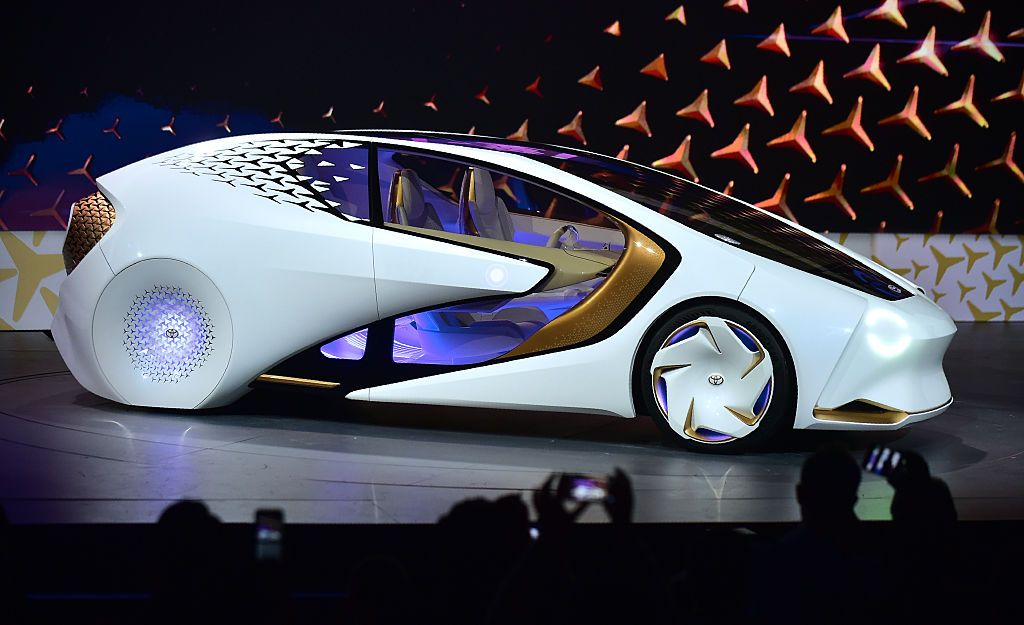Surprisingly often, failing automobile makers will market a strikingly facelifted or even completely new design as one last effort to prevent going out of business. Examples include the 1936 Cord and the 1963 Studebaker Avanti. And so it was with Kaiser and its 1954 major facelift combined with adding a supercharger to its six-cylinder motor.
Kaisers entered the American market for the 1947 model year and were redsigned for 1951, both designs greatly influenced by custom car designer Howard A. "Dutch" Darrin (1897-1982), about whom here.
Head of Kaiser styling was Arnott "Buzz" Grisinger (1908-2002), obituary here, who worked at Chrysler during the 1930s and was at Ford during the last part of his career. The 1954 facelift was created under his direction, but seems to have been influenced by Edgar Kaiser, president of the company. I suspect that left alone, Grisinger might have come up with a different design. In any event, the result was striking. But the lack of a V-8 motor and public perception of Kaiser as moribund helped seal Kaiser's fate. The 1954 model was the last U.S. Kaiser, though the brand carried on for a while in South America.
This is a 1953 Kaiser that differed little from the 1951 redesign.
And here is a 1954 Kaiser Manhattan.
Close-up view of the restyled front end. It resembles ...
... the 1951 Buick XP-300 dream car. The XP-300 is far less known than the 1951 LeSabre, though both were developed and displayed around the same time. Consumer Guide's book "Designing America's Car: The 50s" states that Edgar Kaiser liked the looks of the XP-300, so its concave grille with vertical bars and the headlight housings were adapted for the Kaiser. Surely General Motors was not pleased.
Besides a new hood, fender fronts, grille and front bumper, other expensive changes included the greatly enlarged back window and rear bumper. The redesigned tail lights were comparatively inexpensive, as they did not require heavy metal stamping.
Another rear view of the flashy '54 Kaiser Manhattan.
For some reason (perhaps unused body parts and window glass from 1953), entry-level Kaiser Specials retained the 1951-53 rear window.
Surprisingly often, failing automobile makers will market a strikingly facelifted or even completely new design as one last effort to prevent going out of business. Examples include the 1936 Cord and the 1963 Studebaker Avanti. And so it was with Kaiser and its 1954 major facelift combined with adding a supercharger to its six-cylinder motor.
Kaisers entered the American market for the 1947 model year and were redsigned for 1951, both designs greatly influenced by custom car designer Howard A. "Dutch" Darrin (1897-1982), about whom here.
Head of Kaiser styling was Arnott "Buzz" Grisinger (1908-2002), obituary here, who worked at Chrysler during the 1930s and was at Ford during the last part of his career. The 1954 facelift was created under his direction, but seems to have been influenced by Edgar Kaiser, president of the company. I suspect that left alone, Grisinger might have come up with a different design. In any event, the result was striking. But the lack of a V-8 motor and public perception of Kaiser as moribund helped seal Kaiser's fate. The 1954 model was the last U.S. Kaiser, though the brand carried on for a while in South America.
This is a 1953 Kaiser that differed little from the 1951 redesign.
And here is a 1954 Kaiser Manhattan.
Close-up view of the restyled front end. It resembles ...
... the 1951 Buick XP-300 dream car. The XP-300 is far less known than the 1951 LeSabre, though both were developed and displayed around the same time. Consumer Guide's book "Designing America's Car: The 50s" states that Edgar Kaiser liked the looks of the XP-300, so its concave grille with vertical bars and the headlight housings were adapted for the Kaiser. Surely General Motors was not pleased.
Besides a new hood, fender fronts, grille and front bumper, other expensive changes included the greatly enlarged back window and rear bumper. The redesigned tail lights were comparatively inexpensive, as they did not require heavy metal stamping.
Another rear view of the flashy '54 Kaiser Manhattan.
For some reason (perhaps unused body parts and window glass from 1953), entry-level Kaiser Specials retained the 1951-53 rear window.



















EmoticonEmoticon